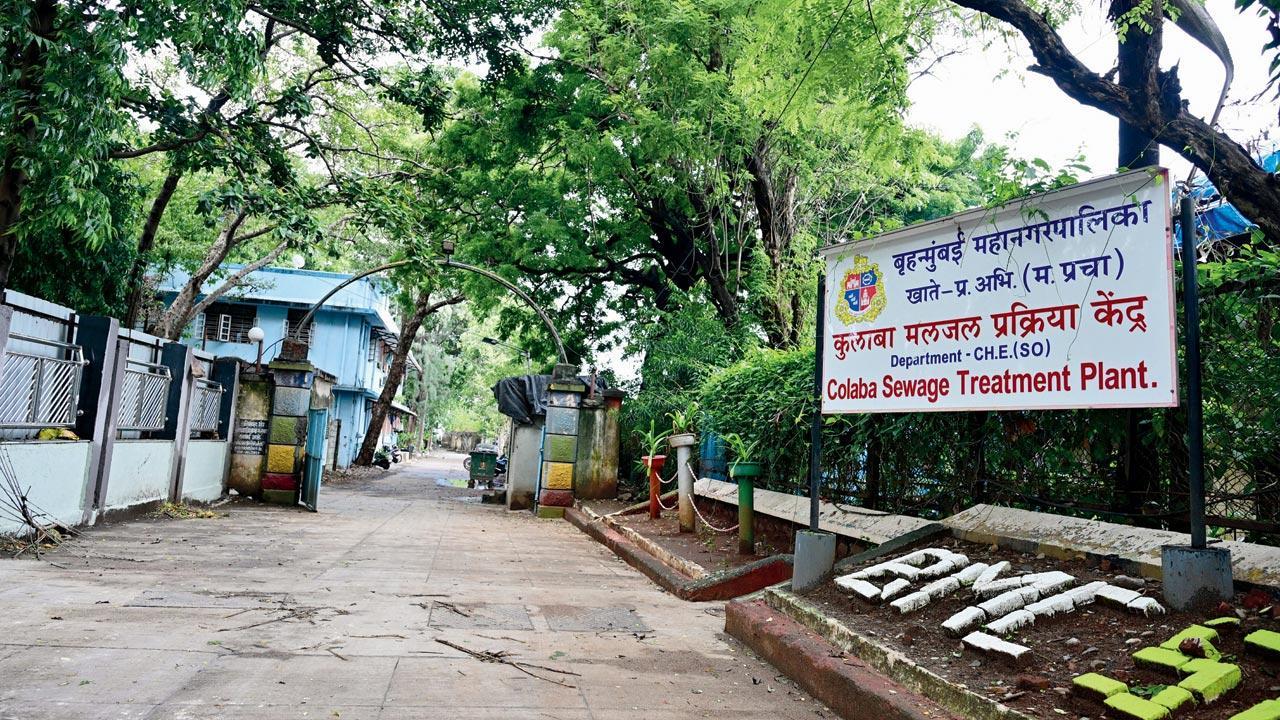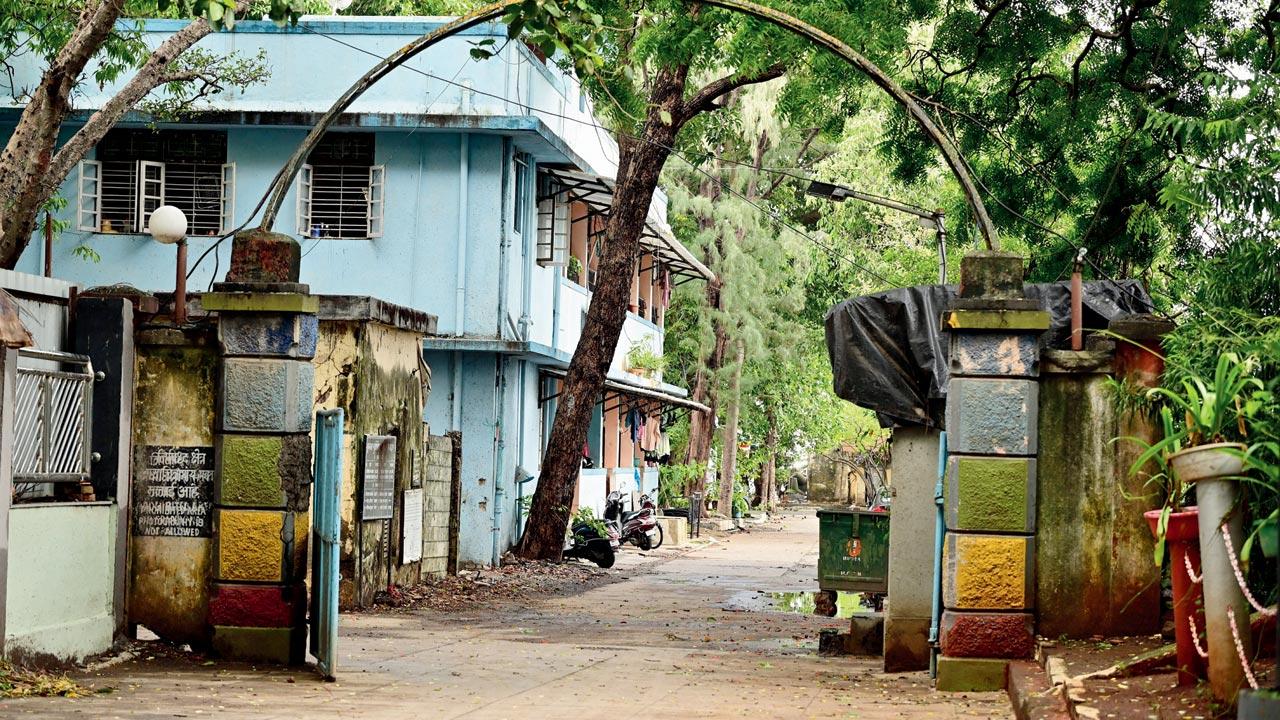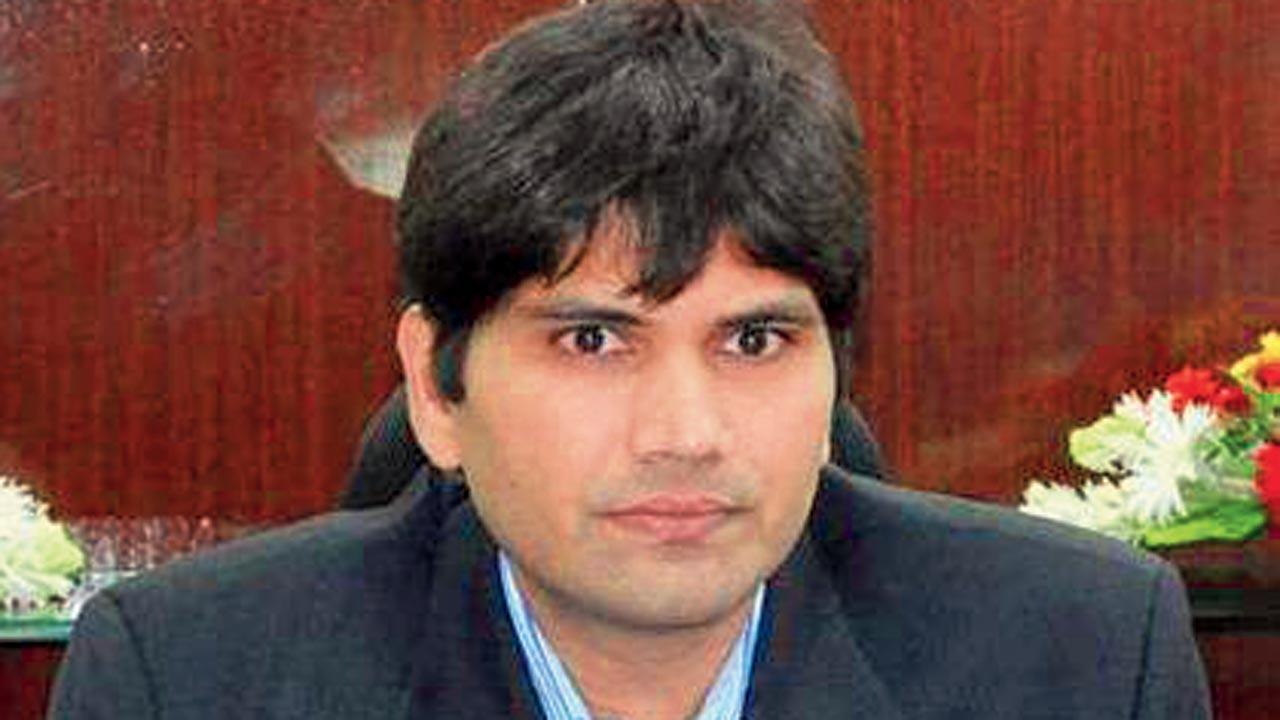Till city gets 2,000 million litres of treated water for non-potable use, we will be heavily monsoon-dependent

BMC’s sewage treatment plant at Navy Nagar in Colaba. Pic/Shadab Khan
As the Brihanmumbai Municipal Corporation (BMC) works on alternative water sources to tackle water shortages, non-potable water from sewage treatment plants remains the primary hope for reducing dependence on potable water. However, developing a separate and parallel supply network will be a significant challenge. The city faces regular water cuts, and demand is rising. To address this, the BMC is upgrading seven sewage treatment plants with a budget of R27,310 crore, aiming to treat 2,464 million litres of sewage daily. After tertiary treatment, 1,200 million litres of water will be available.
ADVERTISEMENT
The city faces regular water cuts, and demand is rising. To address this, the BMC is upgrading seven sewage treatment plants with a budget of Rs 27,310 crore, aiming to treat 2,464 million litres of sewage daily. After tertiary treatment, 1,200 million litres of water will be available.
 BMC’s Colaba sewage treatment plant. Pic/Shadab Khan
BMC’s Colaba sewage treatment plant. Pic/Shadab Khan
“Except for the Malad treatment plant, all other six treatment plants will be complete in the next two years,” said Abhijeet Bangar, additional municipal commissioner. “We have discussed with Bharat Petroleum Corporation using treated water for non-potable purposes; they are ready to take treated water. We will further discuss developing a network to supply treated water and talk with other companies. We can even use this water in municipal properties like garages, BEST depots, and gardens,” Bangar added.
“If we increase the use of treated water for non-potable purposes, it will reduce the load on potable water,” Bangar said. “Developing a network will be a continuous process and can be developed as per the demand. We will work on that,” he added.
 Abhijit Bangar, additional municipal commissioner
Abhijit Bangar, additional municipal commissioner
The secondary treatment plant at Colaba is complete, and work on the tertiary treatment will start soon. The Bhandup and Ghatkopar plants have completed more than 20 per cent of the work, while Versova, Dharavi, and Bandra have completed over 15 per cent. The Malad treatment plant is delayed due to technical reasons, but all other plants will be completed in the next two years.
According to data, around 40 per cent of tap water is used for non-potable purposes, mainly by domestic customers.
Reducing this usage will help increase the availability of drinking water in dams. However, developing a parallel network for supplying treated water remains a significant challenge.
Civic records show that Mumbai’s potable water supply has increased by 16.17 per cent since 2014, from 3,400 MLD to 3,950 MLD. The current demand is around 4,500 MLD. According to BMC projections, water demand will rise by more than 60 per cent, reaching 5,320 MLD by 2031 and 6,424 MLD by 2041.
Rs 27,310 cr
Total cost of the project
40 per cent
Tap water is used for non-potable purposes
Treatment plant capacities
Bandra 360 MLD
Malad 454 MLD
Ghatkopar 337 MLD
Dharavi 418 MLD
Bhandup 215 MLD
Versova 180 MLD
 Subscribe today by clicking the link and stay updated with the latest news!" Click here!
Subscribe today by clicking the link and stay updated with the latest news!" Click here!







